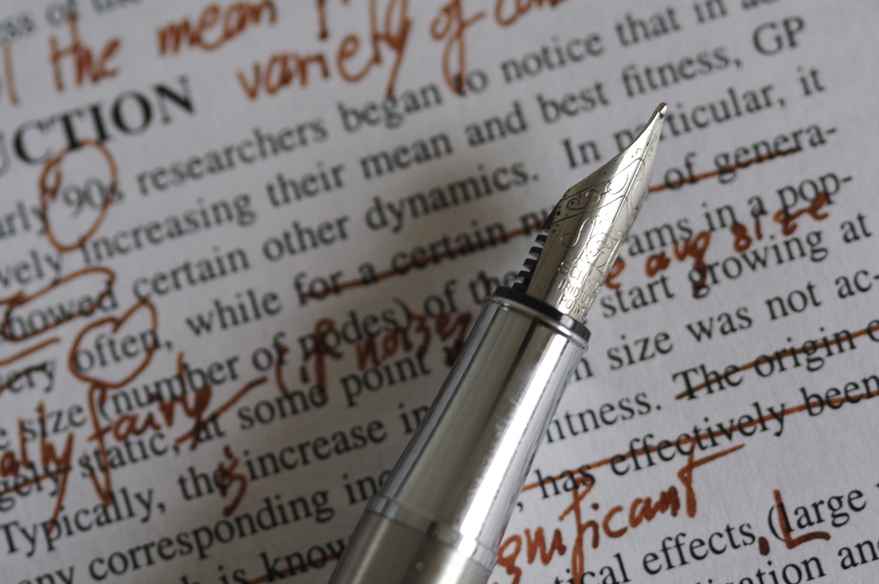Humility and chutzpah: how to revise.

All of the writers we truly adore have a mix of these two qualities: humility and chutzpah.
You know this paradox. You live in it, too.
You have to be humble enough to see the truth and write it down honestly. You surrender. You write a story and follow the scenes even though you don't know what it all really means, or if it's any good at all. You write to the end, even though you have a sinking feeling that the shimmering beauty of your idea is getting more ramshackle and barn-boardy as you attempt to write it.
You feel compelled to finish your story, regardless.
You show it to a good reader and get his feedback. He's honest with you, and you gracefully listen to his points. Ugh, how could you not have seen all the holes in the story? It's so obvious to you now.
You work on your revision, and try to "fix" everything that's "wrong" with the story.
This part can go on for a while, depending on the length of your story, how much you think about it, how uncomfortable you are with editing, and how mystified you may feel about your own story. Is it any good?
Is it any good at all?
You do your best. You write until you don't recognize it anymore. You feel emptied out – in one way, you feel clear, and clean, because there's nothing left inside to come out. But in another way, you're completely confused. Where does the story end and where do you begin? Your edges are blurry. You want to sleep, or laugh, or cry. You've done everything you can to the story at this point (you think). You're done.
Then what do you do?
You have the gall to put your story out there so somebody else can read it!
You don't know if it's really any good or not, and you send it out anyway? Damn. That takes guts.
That takes humility and chutzpah.
All writers have to have both, if they're writing something that's meaningful. Think about a book or a story that you love. Can you see it in the author's work? Can you feel how she's made a supreme effort to make it the best she can? And can you also see how she might not know if it's any good or not?
I'm thinking about Ali Smith, Lisa Moore, David Mitchell, Ruth Ozeki. You know who you're thinking about.
Revision is amazing. Revision makes you grow. It's where you learn what your story really is, and what it's asking from you.
Revision is where you can evolve.
Revision, when done right, will show you your edge, and push you towards it. Riding your creative edge is sensitive and mysterious work. It is not for the faint of heart.
Are you submitting a story to Little Bird this year? I hope so. You're going to need both humility and chutzpah for this, and I've got your back.
Here is a five-part series on revision to help you with polishing your story. Each part of the series tackles a different way to revise. These aren't articles to read about writing that are going to distract you from your actual writing -- these are tutorials. They're hands-on. Get your story in front of you when you tackle these.
Pick one or two, and get real with your revision. Or do them all:
Part 1 – Do you understand your story?
Part 2 – First draft detachment.
Part 3 – Explore with your influences.
You still have 19 days before the Little Bird Contest deadline. That's almost three whole weeks. You have plenty of time to turn your draft into something that you can be courageous enough to submit to Neil Smith. Send it in. Let him read your work.
I'm rooting for you and your story. Do it, do it, do it.
Love,

Photo credit: Nic McPhee on Flickr.

0 comments
Leave a comment